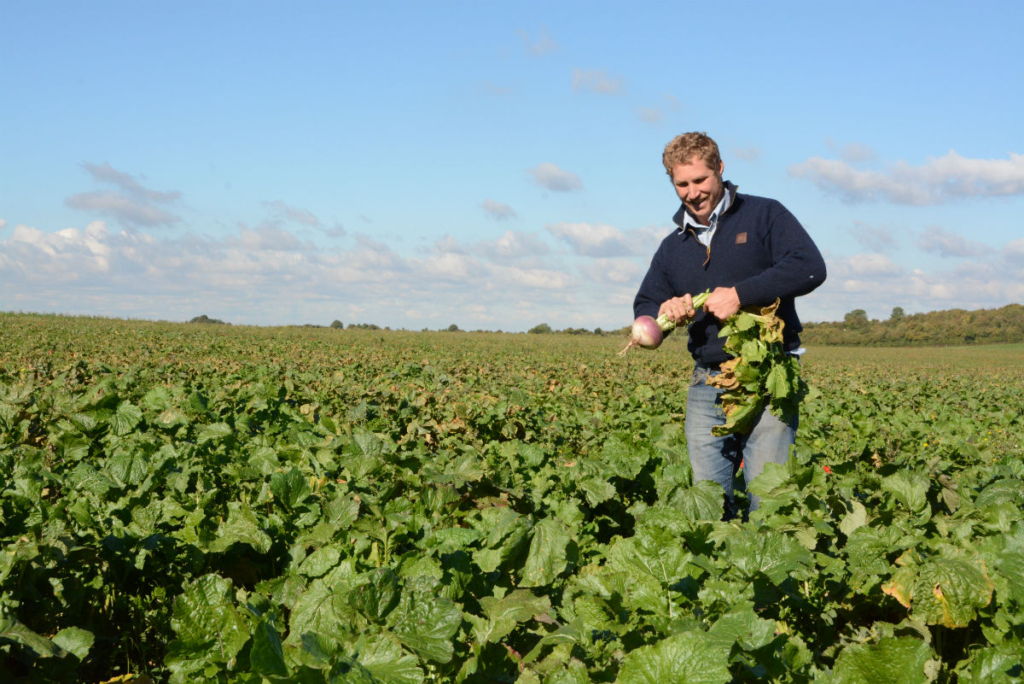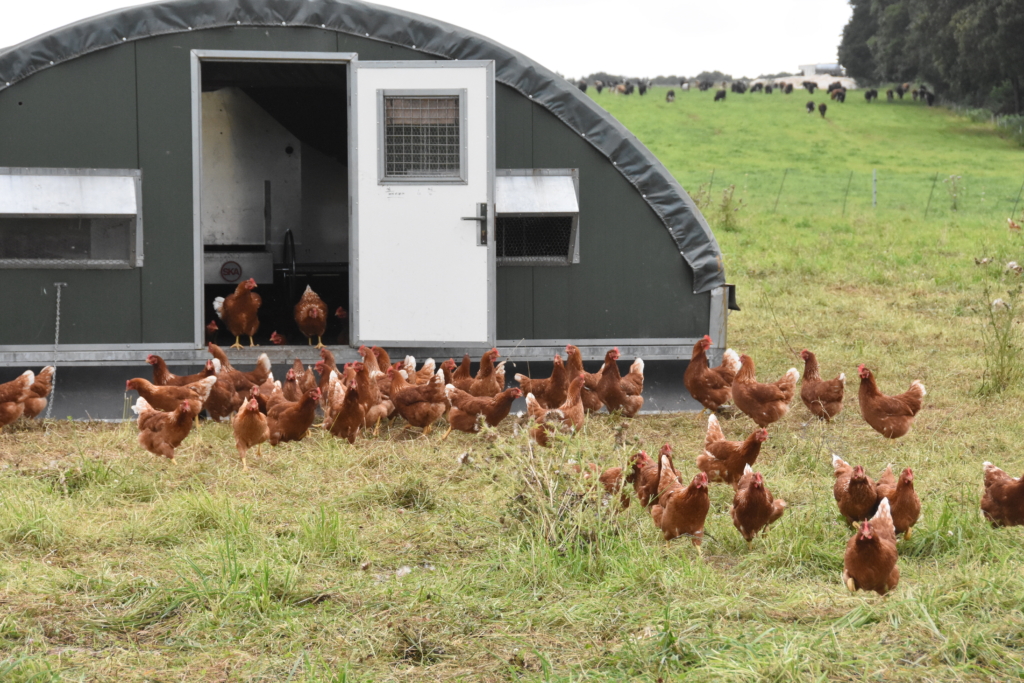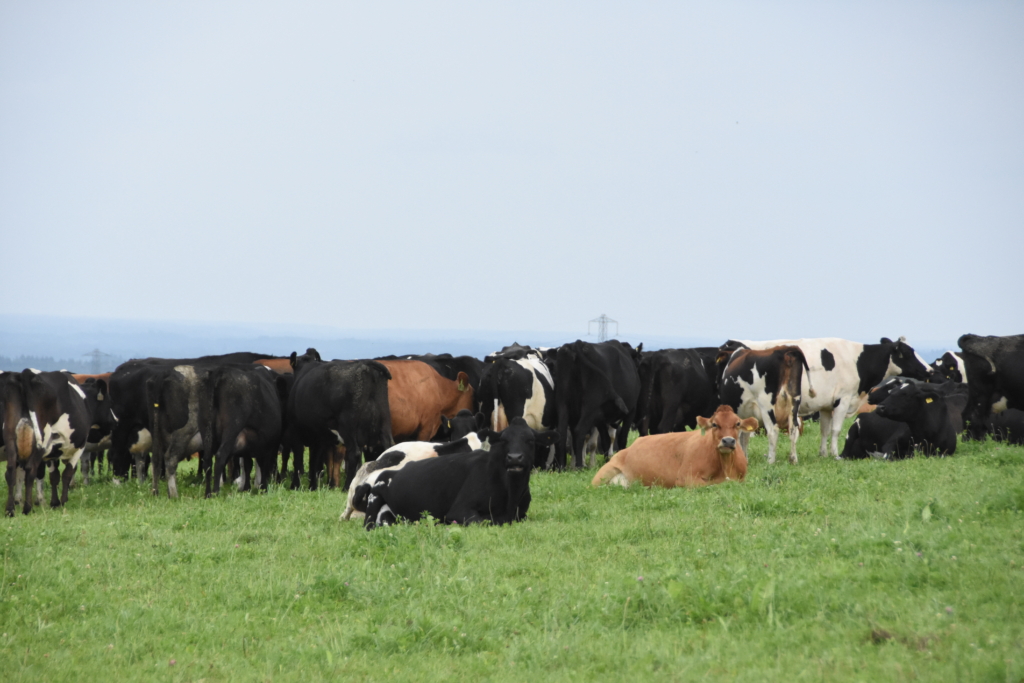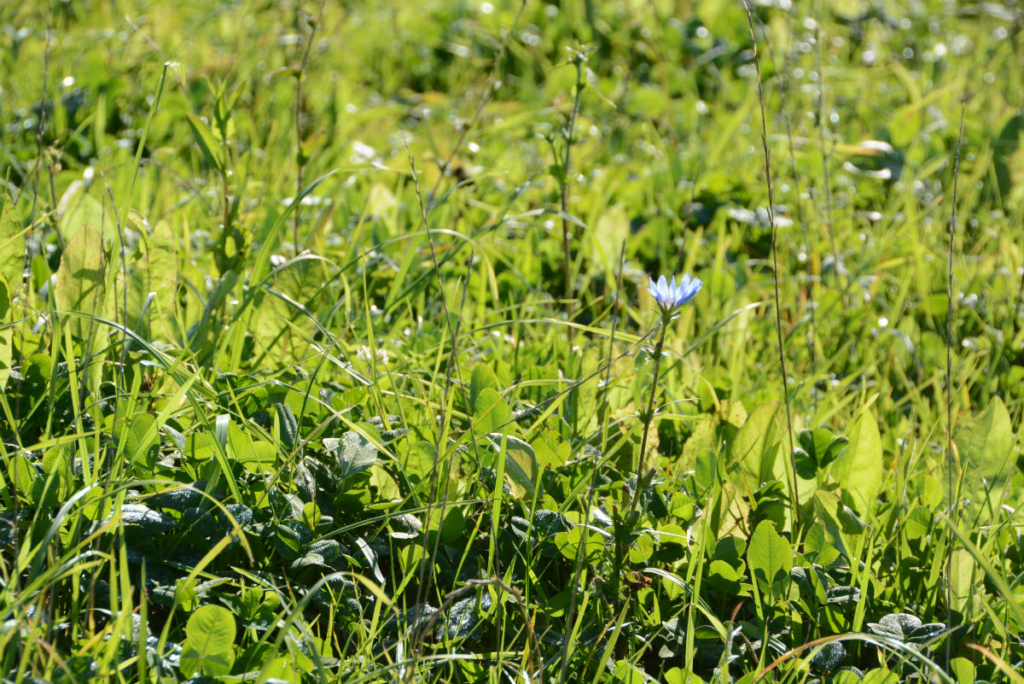Find partners, minimise risk, increase profit – Tim May, Kingsclere Estate
Under phased conversion since January 2017

The laminated, multicoloured farm management, cropping and grazing plan in the estate office is impressive. Folded out it runs from one end of the conference table to the other and gives Tim May an overview of what’s happening (or should be happening) on the 2,500 acre farm on any given day. Like the estate map on the wall it is a handy tool, because a lot changed when May took over the management of the farm in 2004: maximising profits through minimising risks and sharing resources became something of a mantra. It was the lesson he and his father learnt after the farm nearly went bankrupt in 1997.
When a mixed farm can’t succeed
The Kingsclere Estate just outside Basingstoke is beautifully situated. But growing a crop on the chalky loam of the rolling hills with many fields almost covered with flint is a challenge. “The plough wore out in four hours where it would take days on any other farm”, says May, “the same was true for the tyres, the flint the soil is really aggressive”. Back in the 1990s, the farm also ran a dairy and a pig operation. The animals were housed, and while the straw from the arable land was used for bedding, the manure could only be spread on a few fields near the barns, on the rest of the land the soil fertility continued to be depleted. In 1997 the milk price was low and with new animal welfare regulations on the cards, the pigs alone lost the farm £200,000 that year. It was clear to everyone that a dramatically different approach was needed, or the farm would go bankrupt. Reducing financial risks became the main goal: no more big capital investments such as new machinery, and fewer staff. “We needed to be flexible and nimble in everything we did”, says May.
Lessons from a Nuffield scholarship

Tim May is a fourth generation farmer and farming was what he always wanted to do. He got a GCSE in agriculture from Brymore secondary school, one of the few schools that offer this choice. He went on to study agriculture at Harper Adams, but it was winning a Nuffield scholarship that really changed his perspective. He travelled to Brazil, Tanzania, Kenya, and the US to learn about sustainability and find out whether lessons could be drawn for Kingsclere. “We have a yardstick for good soil, we also need one for economics”, was one of his conclusions.
He grabs his notebook and draws a curve that rises steeply at first, then more gently until it levels off. “The steep rise is the start-up phase where you have a high risk but also huge opportunities. In the next phase you’ve establish your business and work on growing and expanding it, very rapidly at first and at a slower pace later”, says May. The farm provides the ideal environment for testing ideas and May is happy to give young farm entrepreneurs with a business proposal the chance to try things out on a small scale. If it works, he may consider a farm-share partnership.
“I am driving a business, not just a tractor”
One such young entrepreneur is Ben Reynaldo, a carpenter who wanted to get into farming. When I first visited Kingsclere in 2016, Reynaldo had just built a mobile hen house and kept 50 laying hens on a pasture that had been grazed by cattle. Five years on, the young farmer has become one of May’s business partners. The chicken flock has grown to 1,200 hens which are housed in four mobile units. Half of the eggs are sold through a vending machine on the estate (next to the road), the rest goes to organic wholesalers. The profit is shared in accordance with the share-farm agreement. And with the units being mobile, Reynaldo can grow his business beyond Kingsclere by co-operating with other farmers in the area who may also want to “host” a flock of hens.

From the start May wanted to reintroduce cattle to Kingsclere because “the powerhouse of the farm is grass and dairy”. To get more experience with keeping livestock and holistic managed grazing he first introduced sheep to the farm, and he also set up what he calls “a beef cattle B&B”: the cattle were owned by another farmer, but they grazed Kingsclere pastures and May managed them. Low risk at low cost. After learning how to handle cattle, May in 2017 entered into a new share-farm agreement which saw dairy cattle return to the farm: farm partner Oliver Chedgey runs the 480 New Zealand Frisian Jersey crossbreed dairy cows and the 20 a side mobile milking parlour with the running costs split between Tim and Oliver. Oliver owns the machinery and puts in Labour, while Tim provides the food and the land. The income from milk and surplus cow sales are split accordingly.
Going organic
The decision to convert Kingsclere to organic was driven by the consistently higher price for organic milk and dairy products. In 2017, May decided on a phased conversion, one eighth of the land at a time – which means the whole farm will be organic by 2023. May says he had to learn a lot and by not taking the farm organic all at once he knew that if something went wrong he would still make a profit from conventional crops. He works with an eight year rotation, four years of herbal leys which are grazed, followed by four years of crops. Initially, he wasn’t sure whether the herbal leys would sustain four years of cropping, “in organic you really need to look after soil fertility. If you deplete it, it takes 10 years to build it again. You cannot buy stuff in a bag to replenish it”, he says, but so far everything is working out well. May is only interested in growing high value crops, growing feed does not make sense to him. Going organic has provided him with new opportunities: he is growing specialty crops such as quinoa, linseed and heritage grain varieties and he might even grow a whole field of borage for borage oil. He considers the companies and processors he sells to his partners, he aims to grow exactly what they need and that can mean introducing a crop such as linseed or quinoa, which he wouldn’t have considered on his own, had it not been for the demand by a buyer.
Farm hub future
In cities, food hubs connect growers, small processors, incubator businesses producing food, commercial buyers and customers. It’s a type of infrastructure that facilitates delivery, avoids food waste, reduces the carbon footprint and helps growers to achieve better prices. What if something similar could happen on farms? At Kingsclere, old farm buildings have been converted into a 100,000sqft commercial space which houses 50 different businesses, the waiting list of companies wanting to rent is growing. The 35 existing farm cottages have been refurbished for residential accommodation. And Tim May hopes to significantly increase the number of partners he farm-shares with. “There is little I can’t imagine happening on the farm”, he says, from someone keeping pigs, to cheese making, glamping, a farm shop, a micro brewery…. Kingsclere could become a farm hub where some or all of the ingredients needed by the businesses in the commercial space would be produced on the farm – milk for a cheese maker, malting barley for a micro brewery, heritage wheat for an artisan bakery. And with Basingstoke just five miles away, a customer base is pretty much guarantied. He wants to retire from running the farm before the next generation are 30, says May, which means in 2041. “By then I can imagine we have 20 farm-share partners on Kingsclere”.

Written by Marianne Landzettel, with photographs by Martin Kunz


